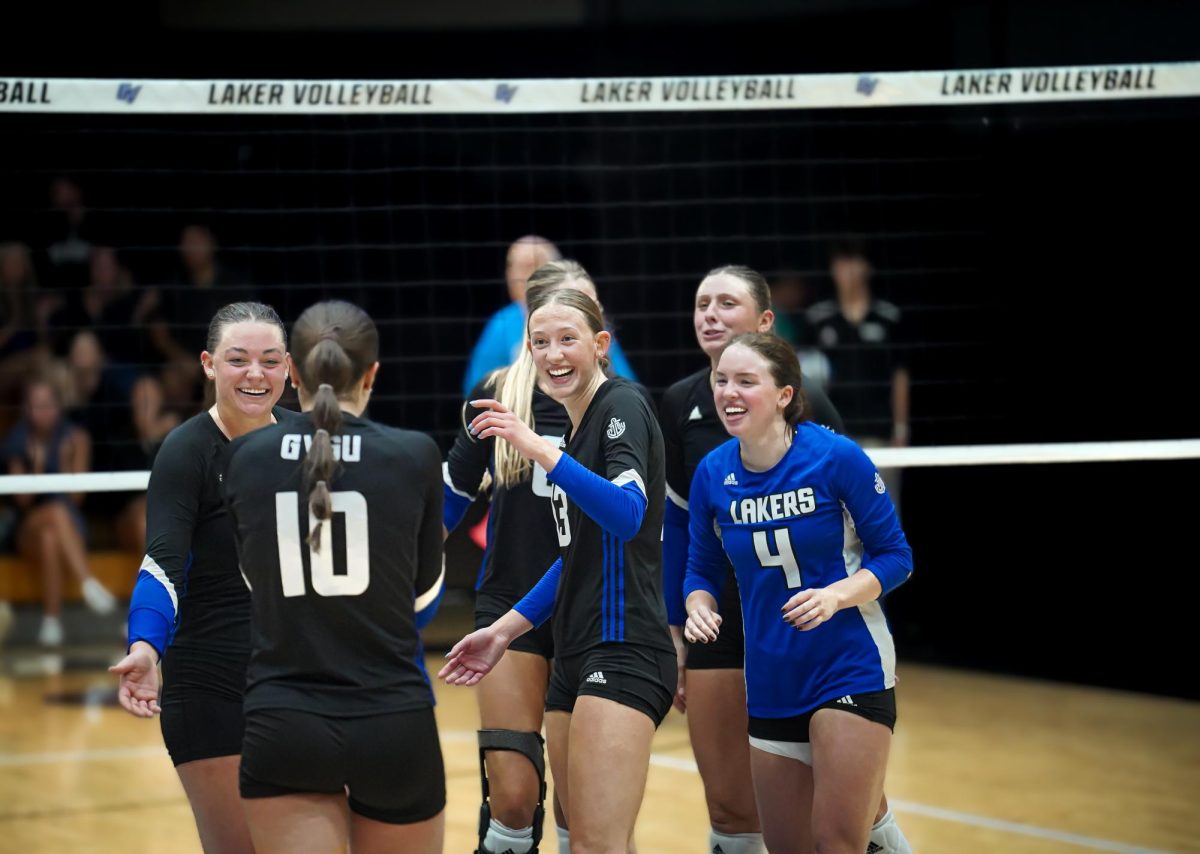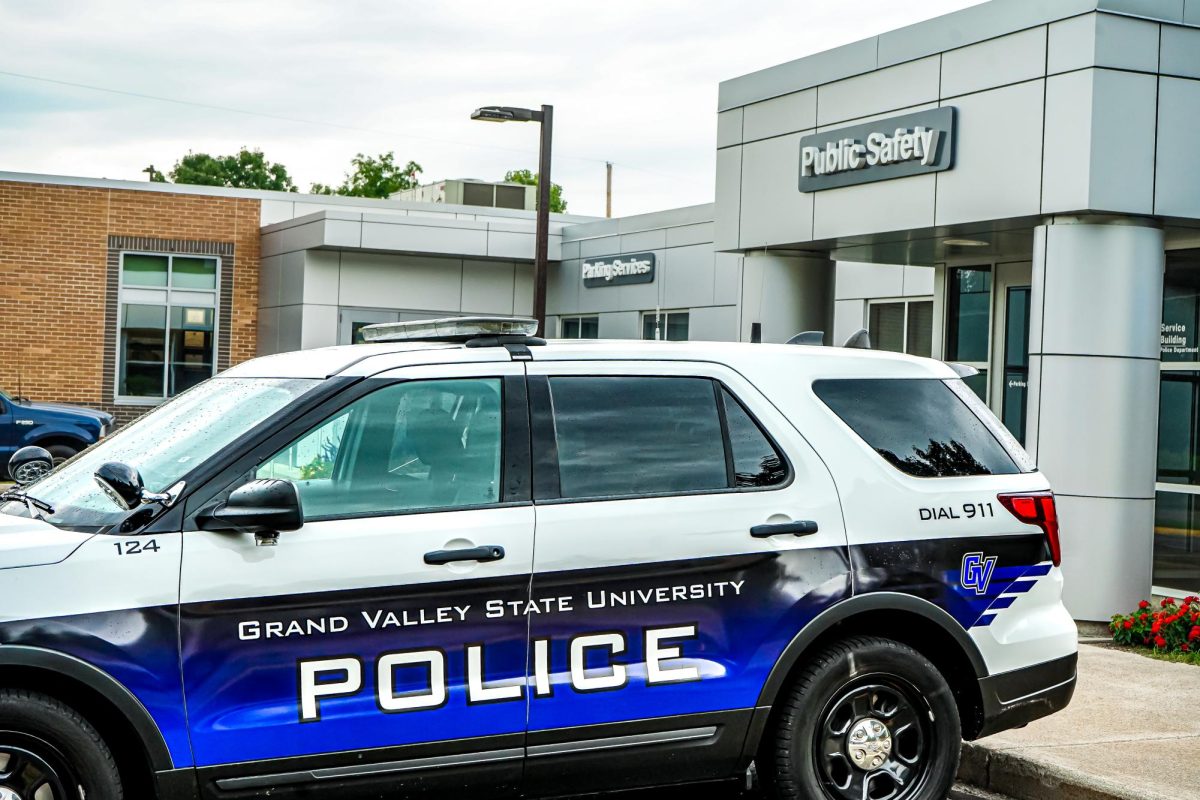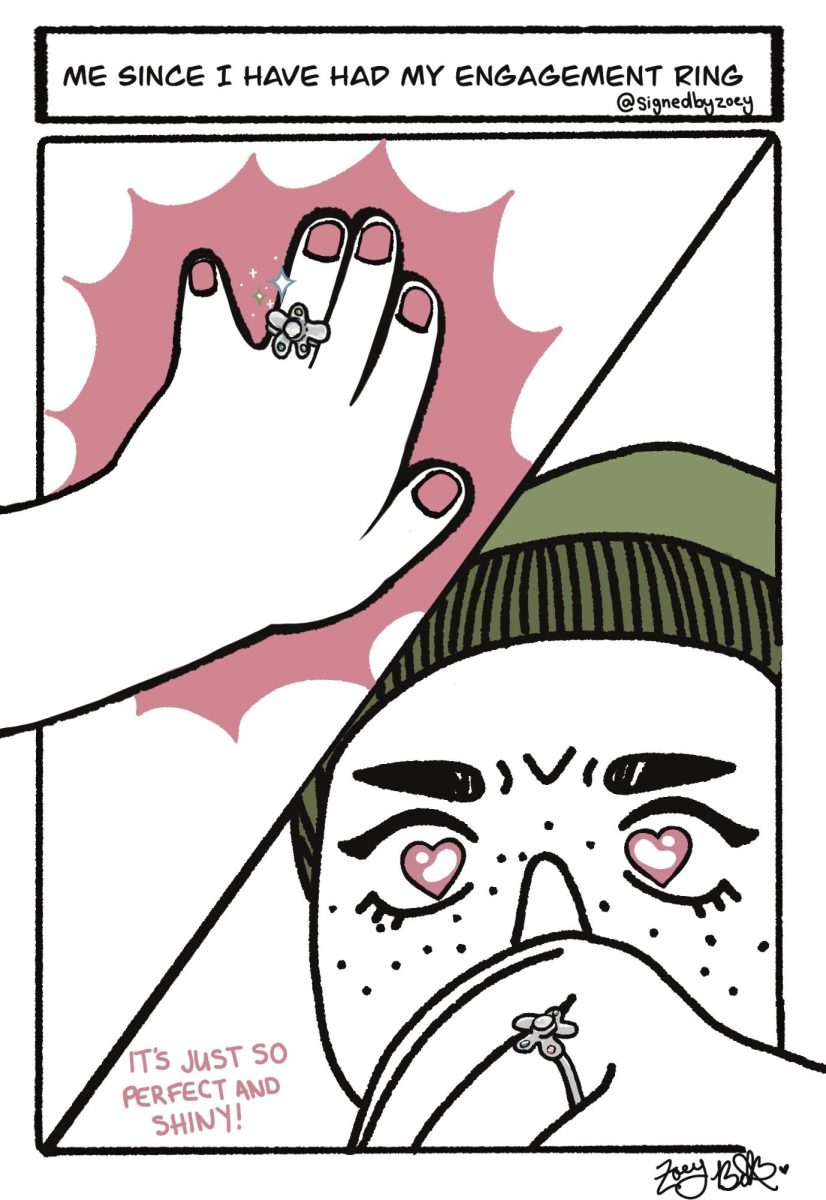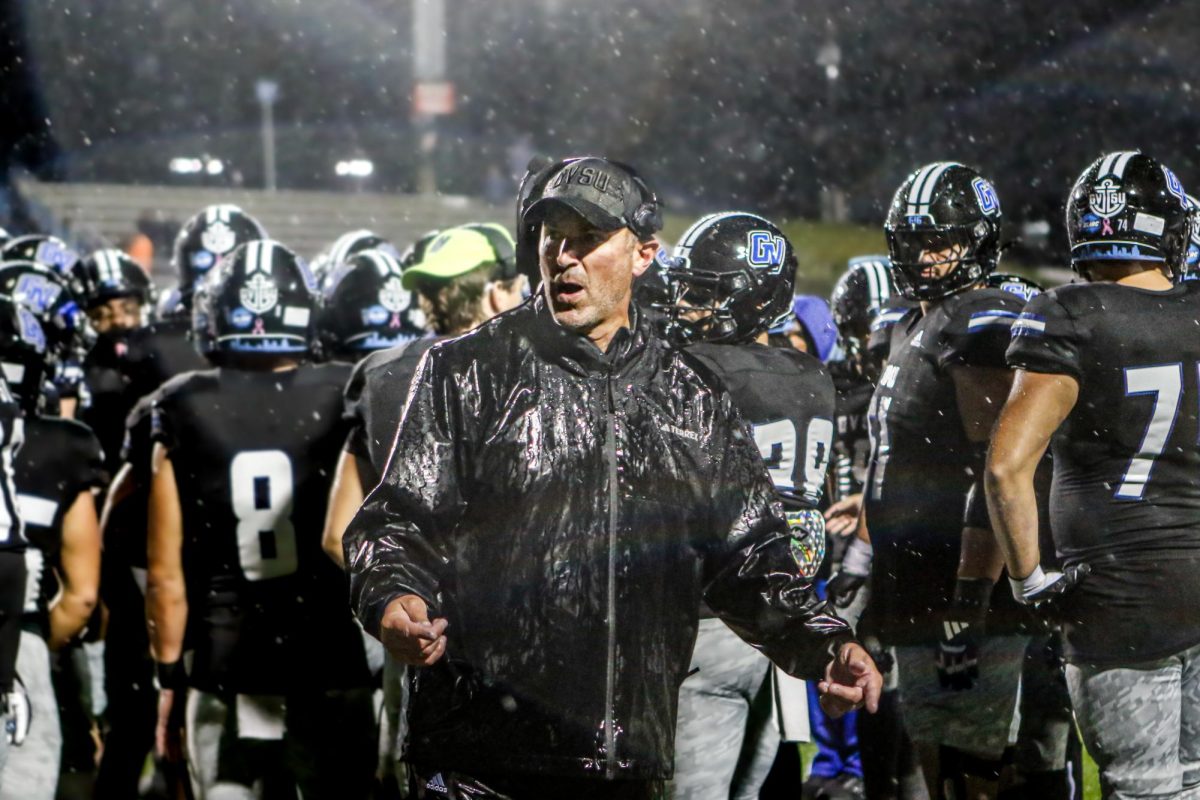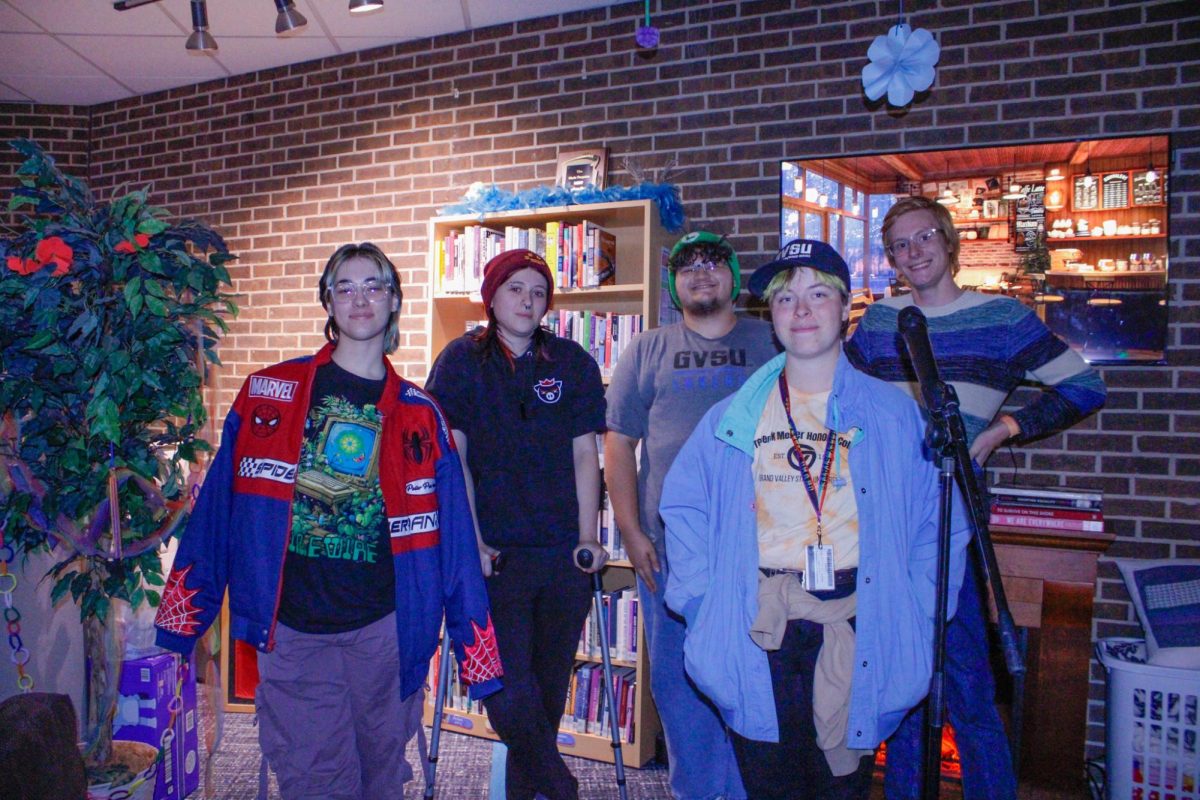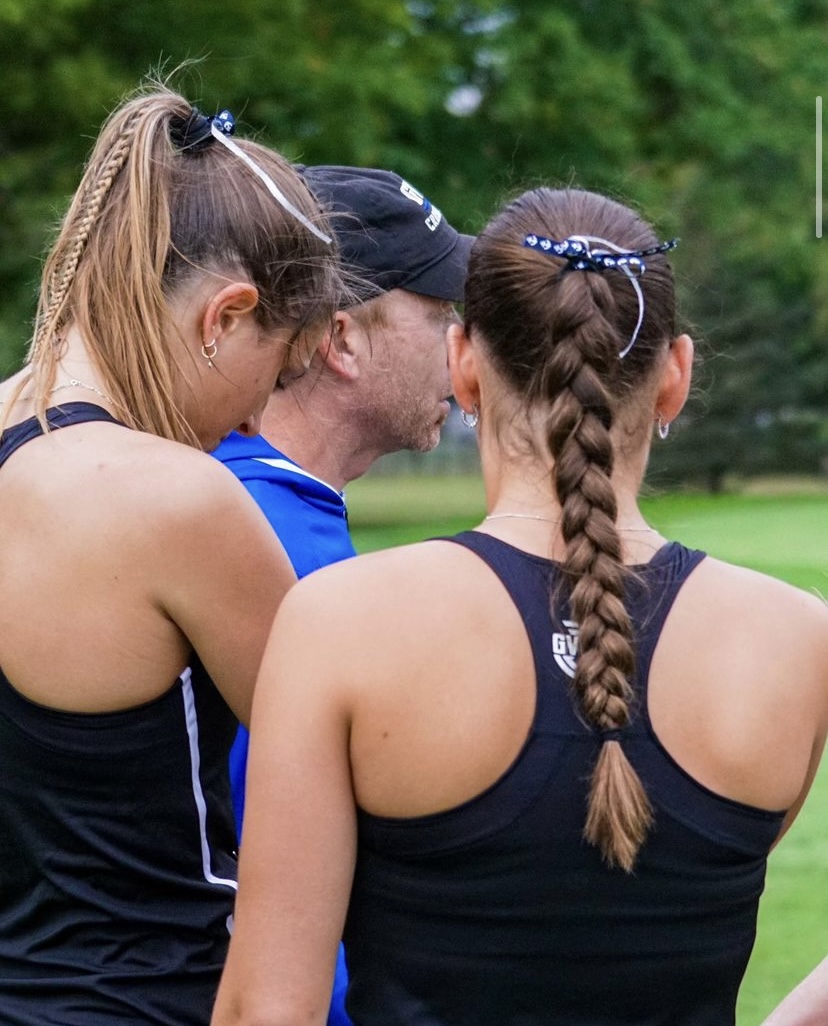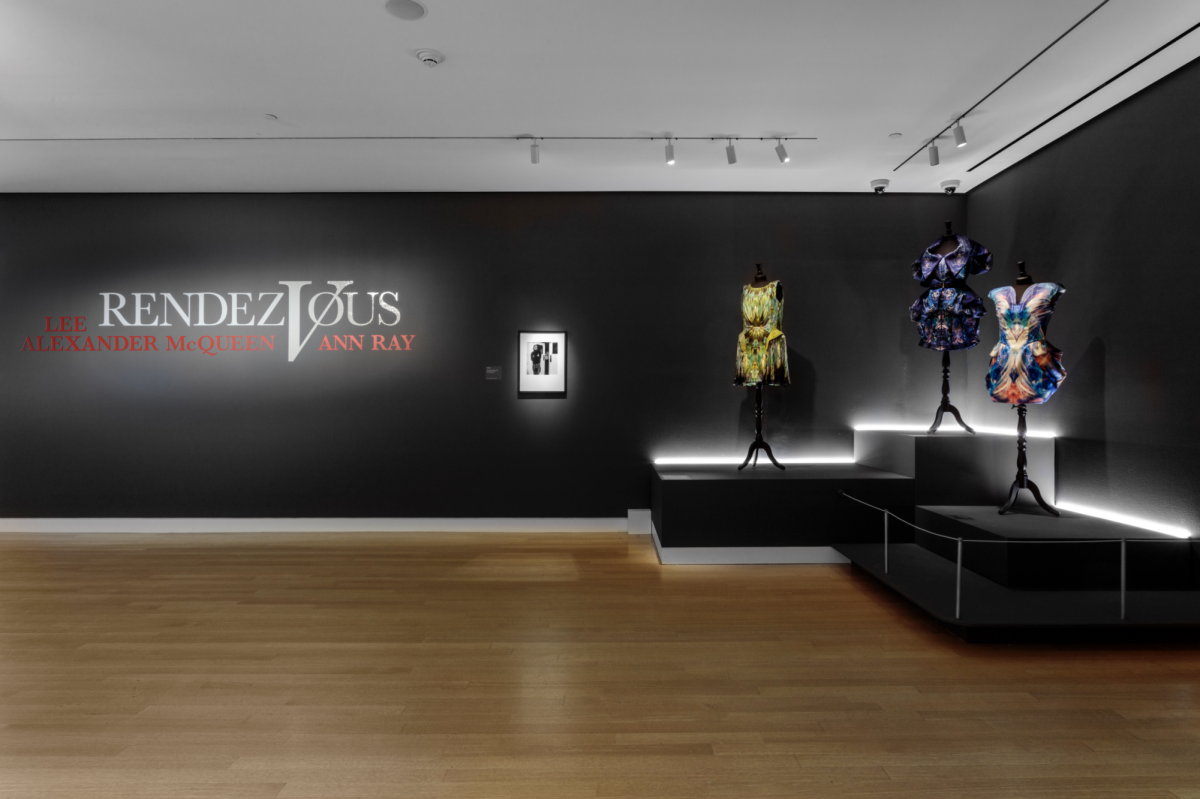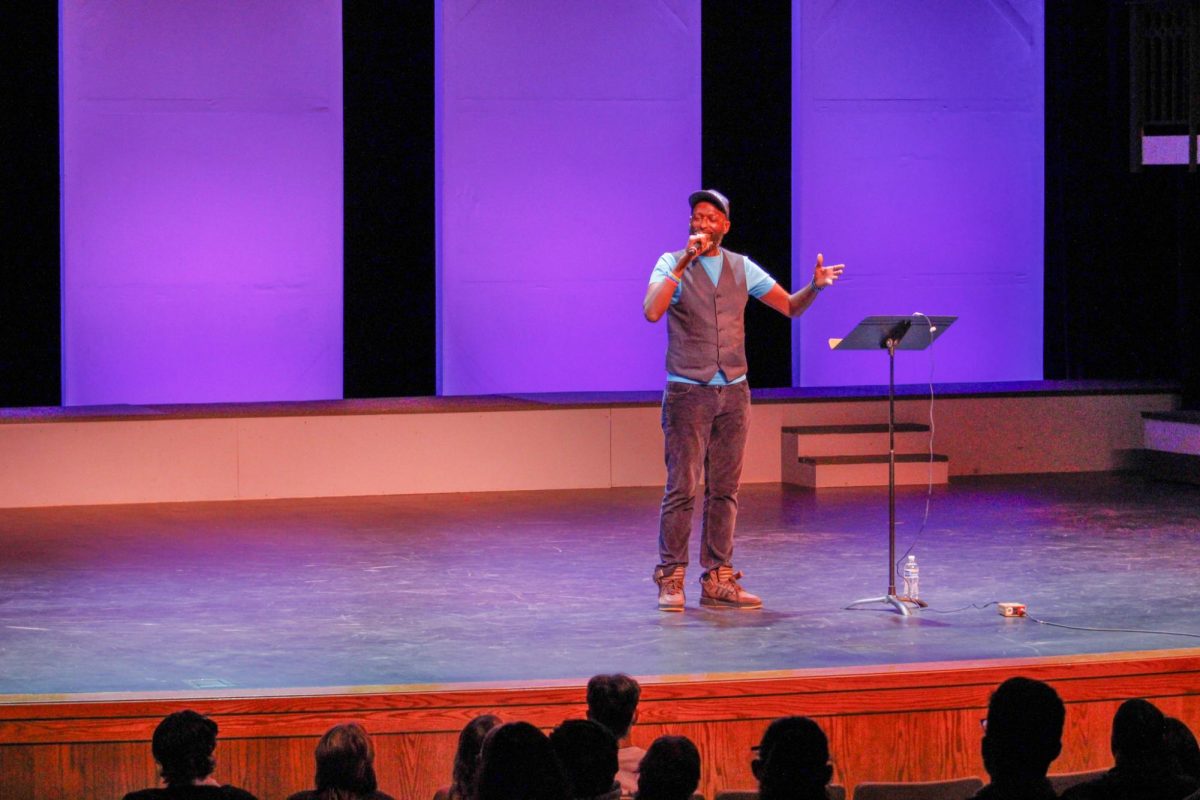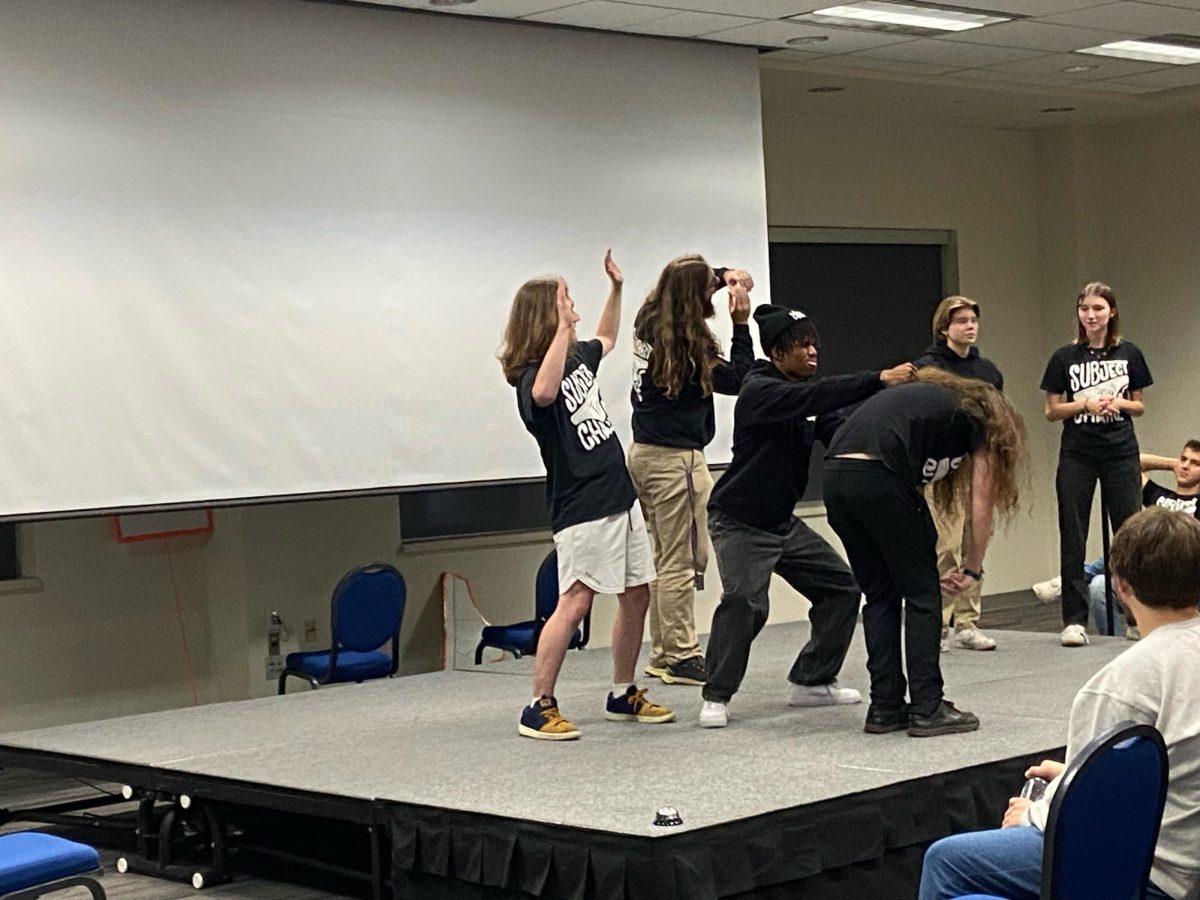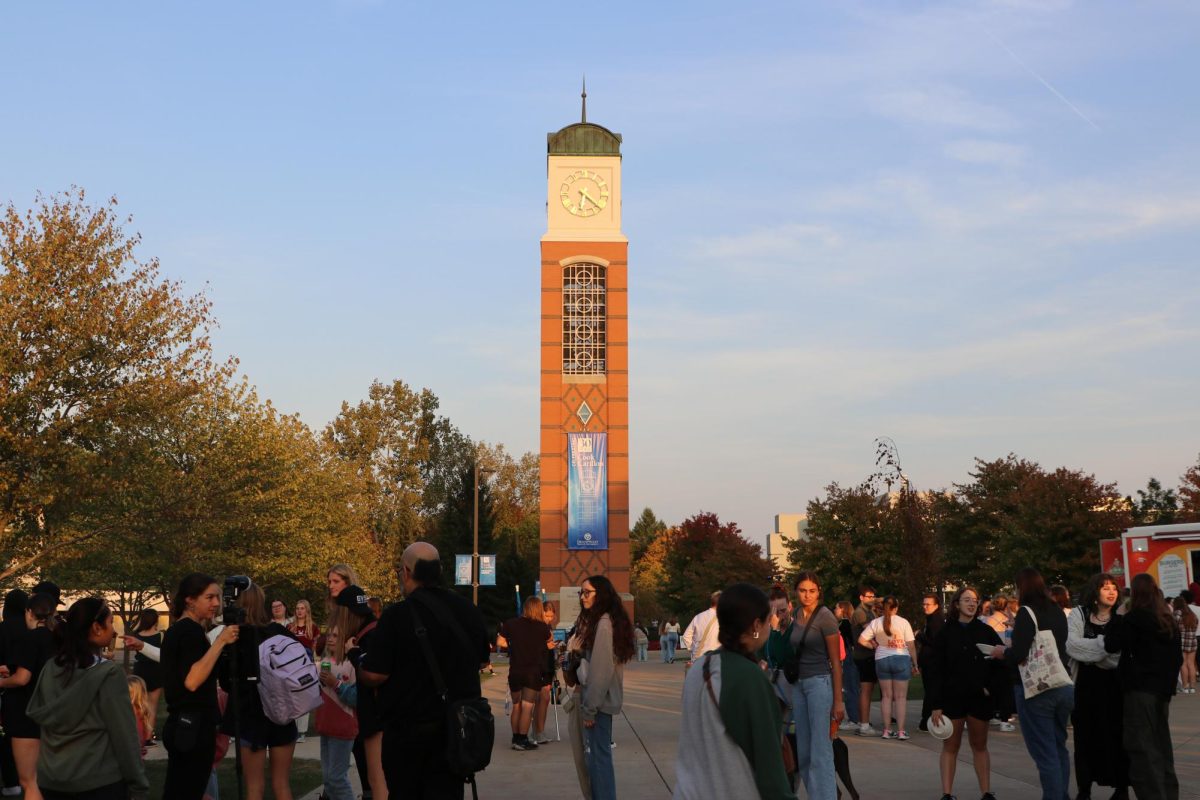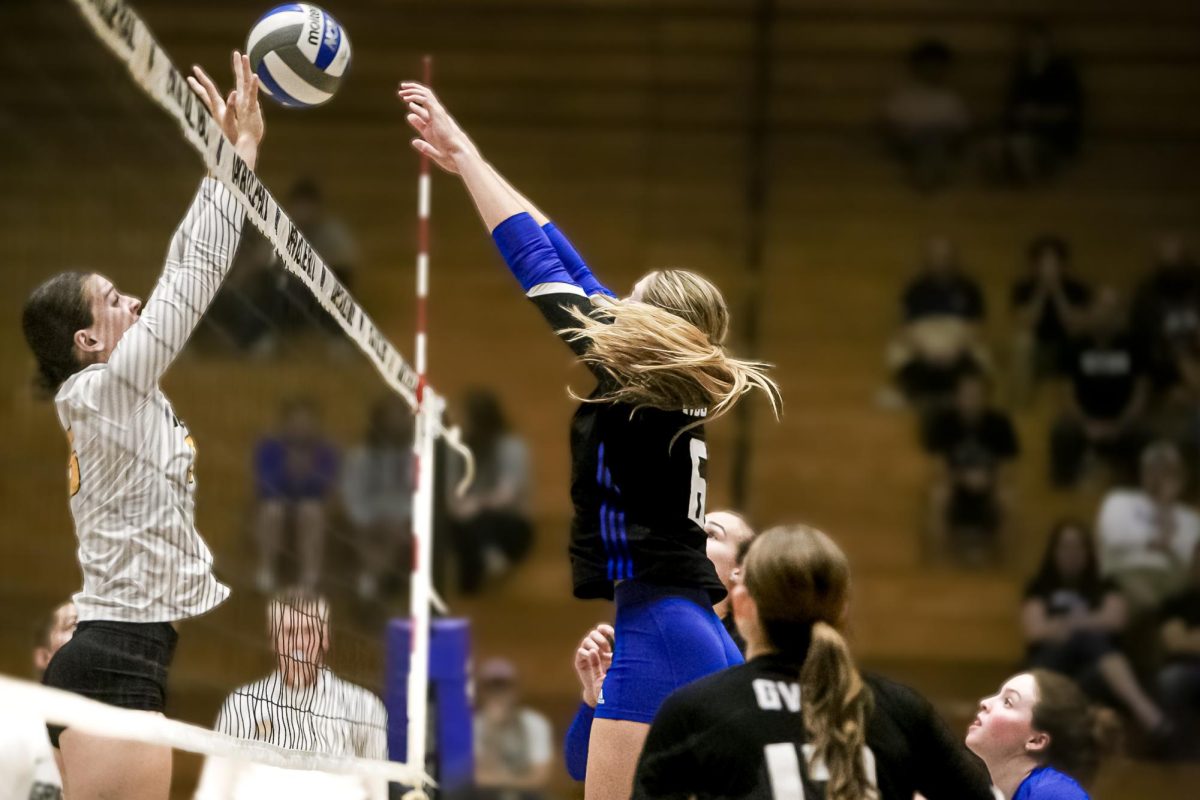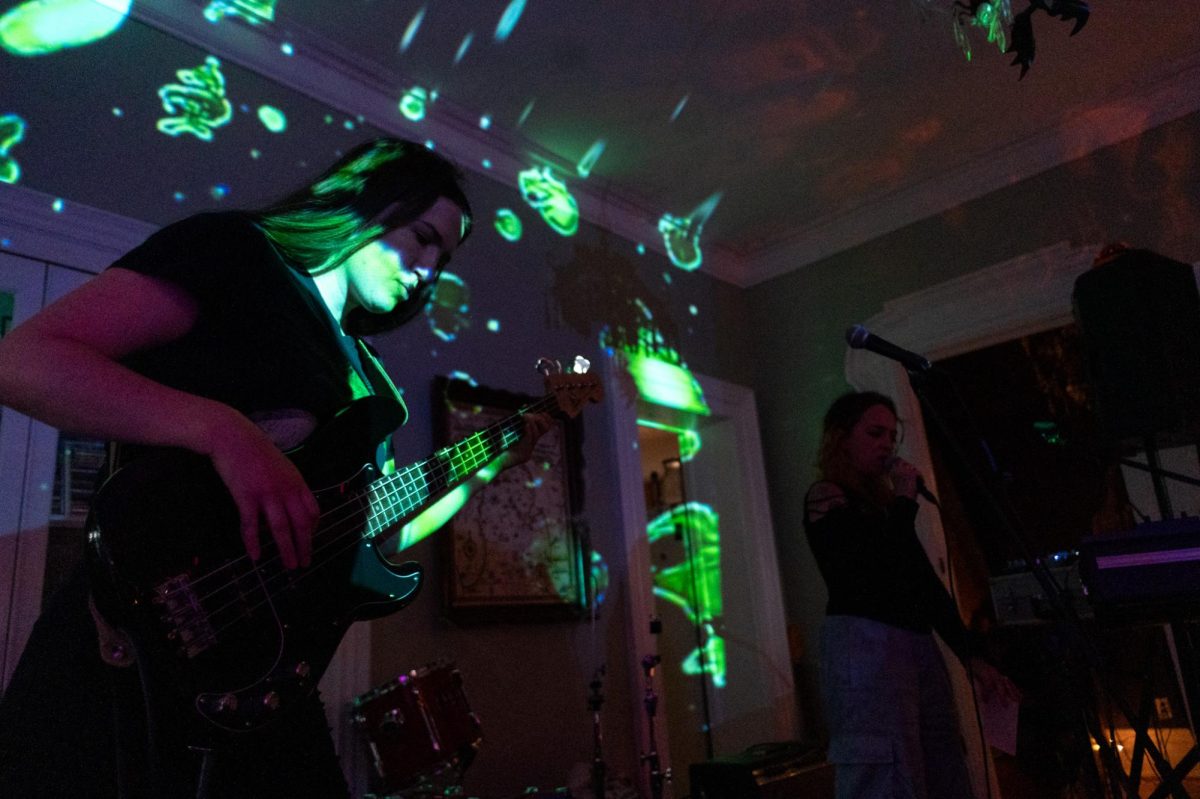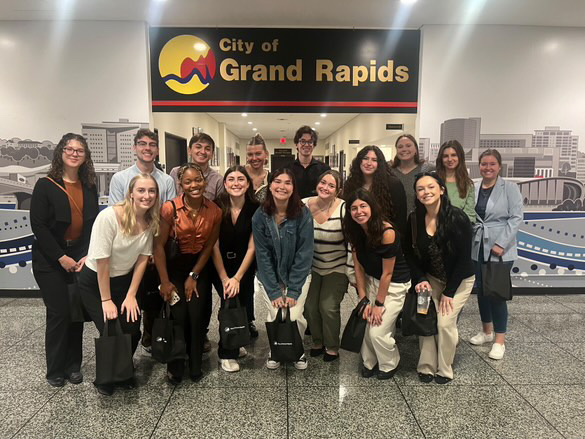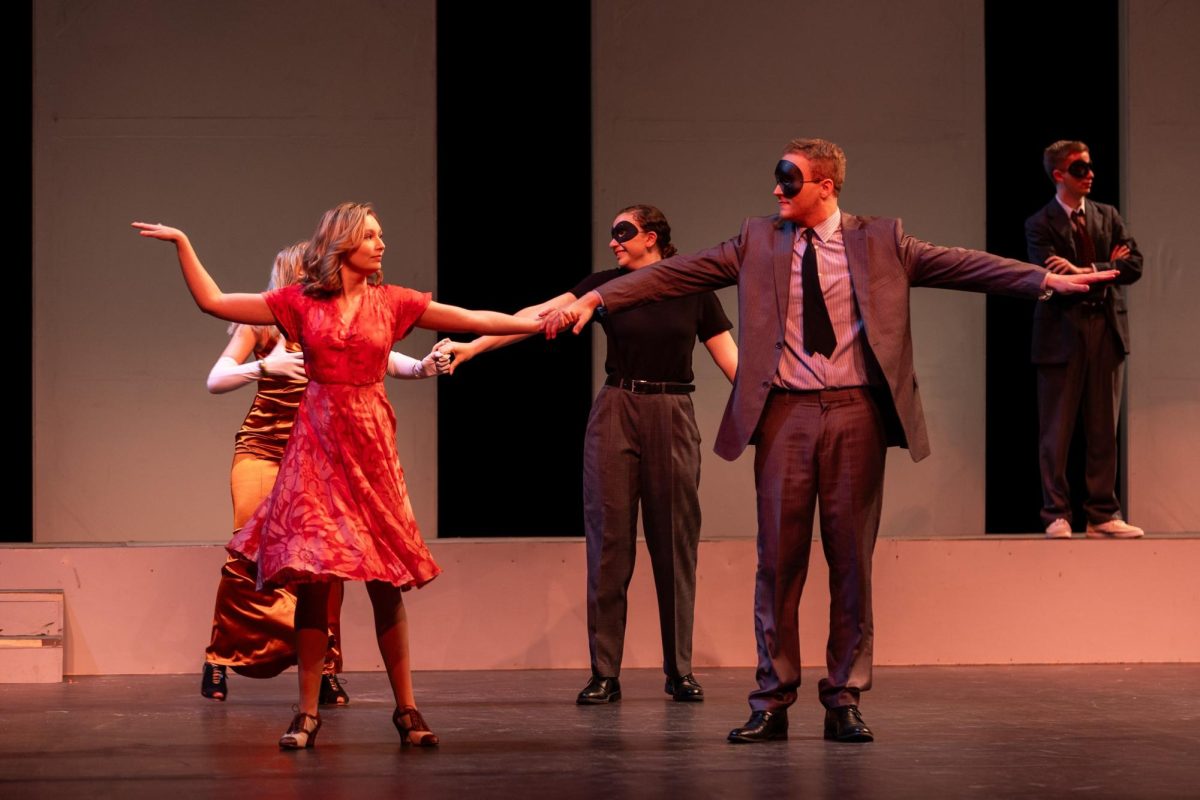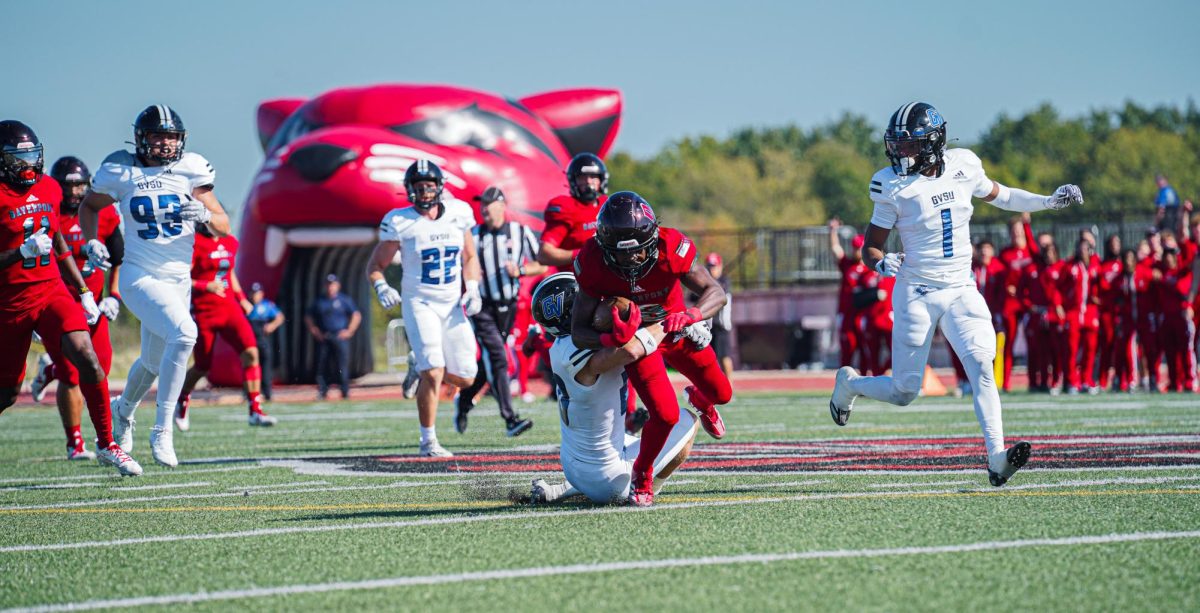We Are One emphasizes acceptance, cooperation
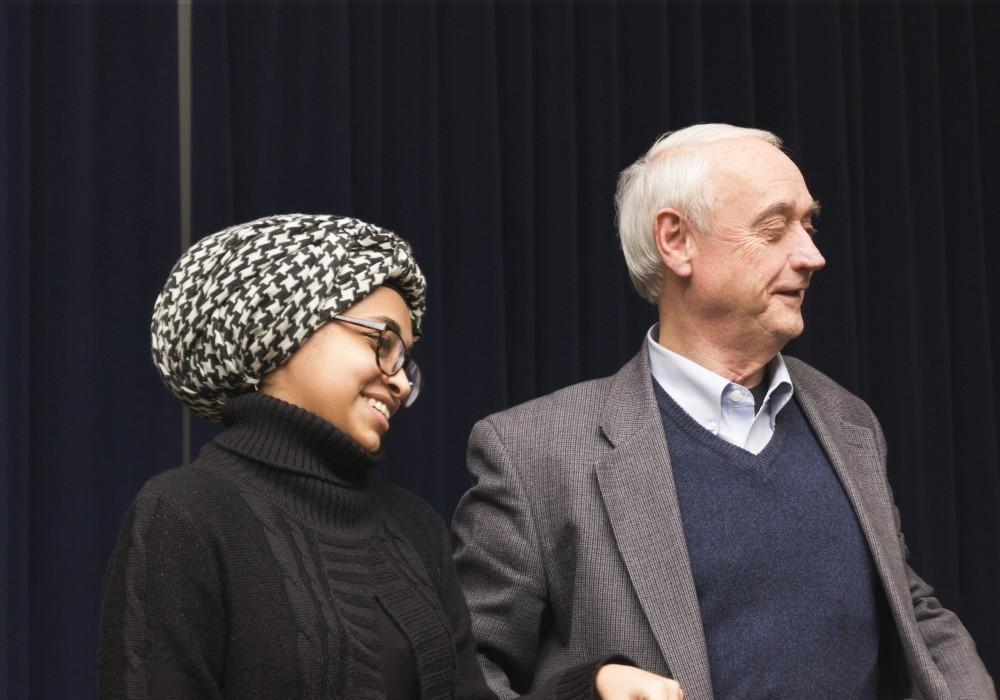
GVL/Lauren Loria Douglas Kindschi, a Grand Valley professor and Director of the Kaufman Interfaith Institute, being introduced to speak
Feb 12, 2015
Groups of students gathered around sticky-note filled tables on Feb. 10 to listen to Douglas Kindschi, director of the Kaufman Interfaith Institute and professor of mathematics and philosophy, speak at the opening ceremony for the We Are One interactive event.
We Are One is an event that seeks to engage Grand Valley State University students, faculty and staff in the pressing global conversation on societal hatred and bigotry, according to the event flyer.
Students were encouraged to write on the sticky notes as a way to convey thoughts, experiences and pose questions related to the effects of hatred within society and what actions can be taken to change it. After discussing their notes, they posted them on various walls of the library.
Kindschi discussed how who we are as people comes from our parents and how we inherit things individually from them, but we cannot survive individually. Individuals can only survive in a group.
“Some species abandon their offspring immediately with no problem, but primates and humans have to live in groups,” Kindschi said. “Historically, groups have been families and tribes. Us belonging to a tribe enables us to live and to survive and for thousands and thousands of years; it was important to know what was in our tribe. Someone who isn’t in our tribe must not be human like I am.”
Another topic involved religion and how it has enabled people and tribes to move beyond a specific geographic area.
“Religions grew and spread and gave us an identity with groups that weren’t in our own geographical area,” Kindschi said. “So religion is really important. It’s what makes me human. Those religious people believe it’s their purpose in life and it’s tempting to think someone with a different culture, race or religion is not human, but how are we going to live in that kind of environment?”
Kindschi closed the discussion by suggesting the agenda for being one and how it can be accomplished.
“The first step is tolerance and it’s a very minimal first step,” Kindschi said. “It means if someone does something that I don’t like, I might be very offended. But tolerance means that I won’t respond with violence. All it says is that I won’t do physical harm to someone who is different than me or that I disagree with.”
The second step is hospitality.
“It’s simply being nice and random acts of kindness,” Kindschi said. “Being nice to someone you don’t know or don’t like. You don’t have to be friends with someone to be nice.”
The final step is acceptance.
“Accepting that the other person who may be different is also a child of God, or in more neutral terms, someone who deserves the respect and acceptance as a fellow human being,” Kindschi said.
“If we’re going to be one, we can go beyond that to understanding,” he said. “We engage in conversations, we learn about them and we still may not like them, but we have a desire to understand them.
“We can also go one more step to respect. Respect comes with a more firm relationship where you really want to understand them.”



